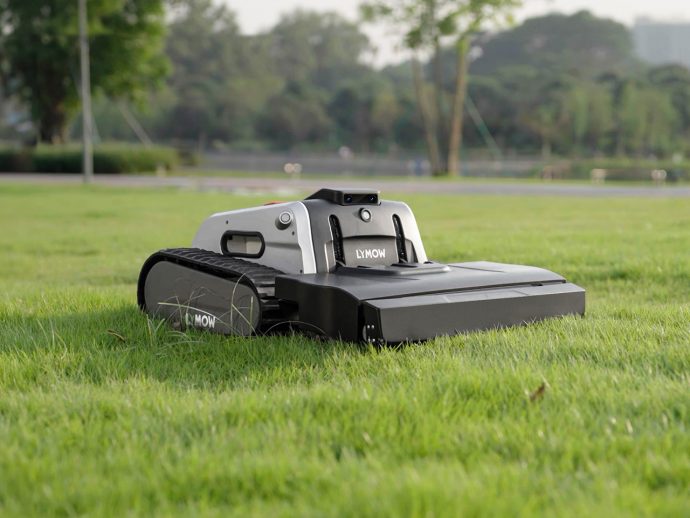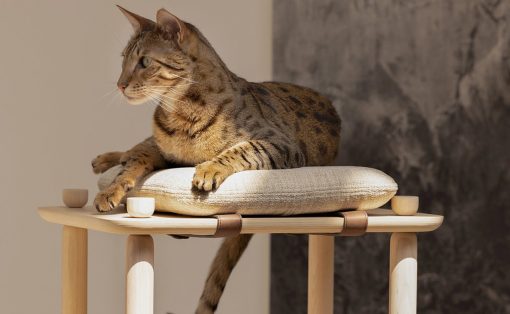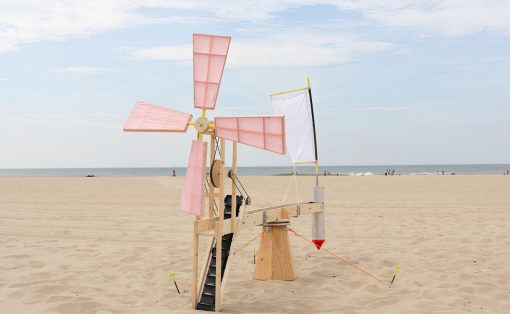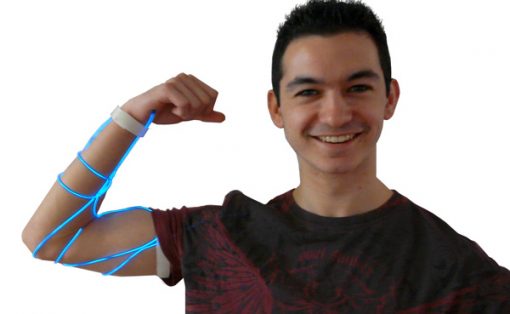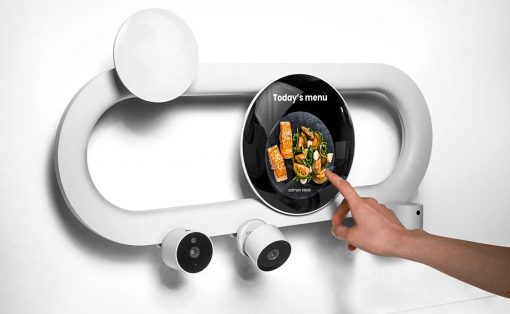
2020 was a life-altering and drastic year, and 2023 is the year we get to redeem all our careless mistakes of the past and start living more consciously and sustainably. We cannot ignore the needs of our planet anymore, we need to take the environment into consideration, and what better way to start doing that than from our own homes? Sustainable furniture is taking the design industry by storm, they’re a step towards making our homes and our daily lives more eco-friendly and sustainable. They’re an attempt to cast aside toxic materials, and instead, add furniture designs to our home that won’t rot away on Earth for years once we’re done with them. We’ve curated a collection of furniture products created from cork, bamboo, and rattan! The options are endless, and the end result is the same – a greener, healthier, and happier Mother Earth!
1. 3D-printed Seats


Designed by Johannes Steinbauer Office For Design, these 3D-printed chairs are produced using additive manufacturing and are created without using fabrics, springs, and foam! And they still manage to be super functional and comfortable. These chairs utilize rigid parts, instead of the typical racks from chairs.
Why is it noteworthy?
The design is simple enough with four legs, a round seat, and a single bar at the back. But if you want to add other components like more racks or textiles, these can be added through 3D printing. The different parts are easy to assemble and disassemble and once it reaches the end of life, you can dispose of the different parts separately and recycle them accordingly.
What we like
- Super easy to assemble and disassemble
- Sustainable design
What we dislike
- No instruction on having a space-saving version of this design
2. The 4PM Chaise Longue Chair
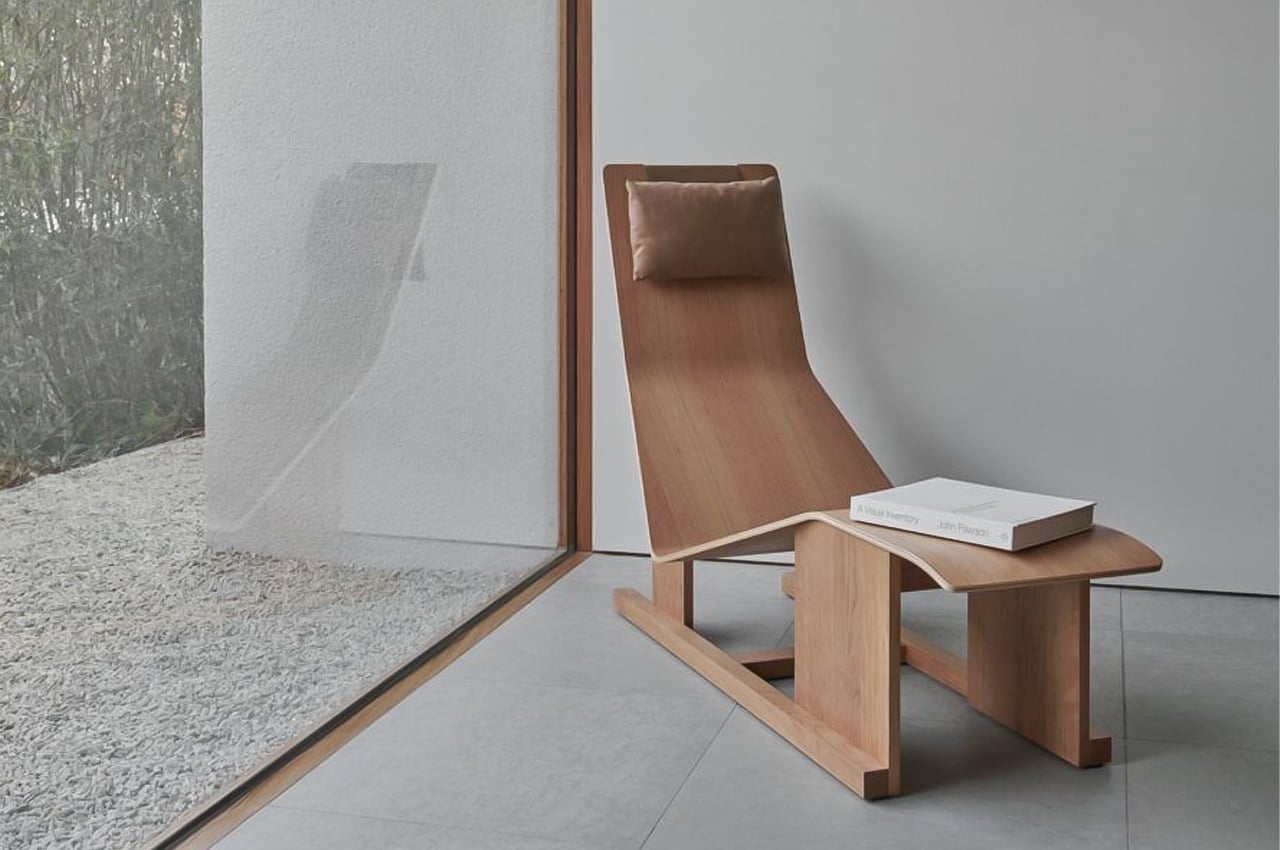
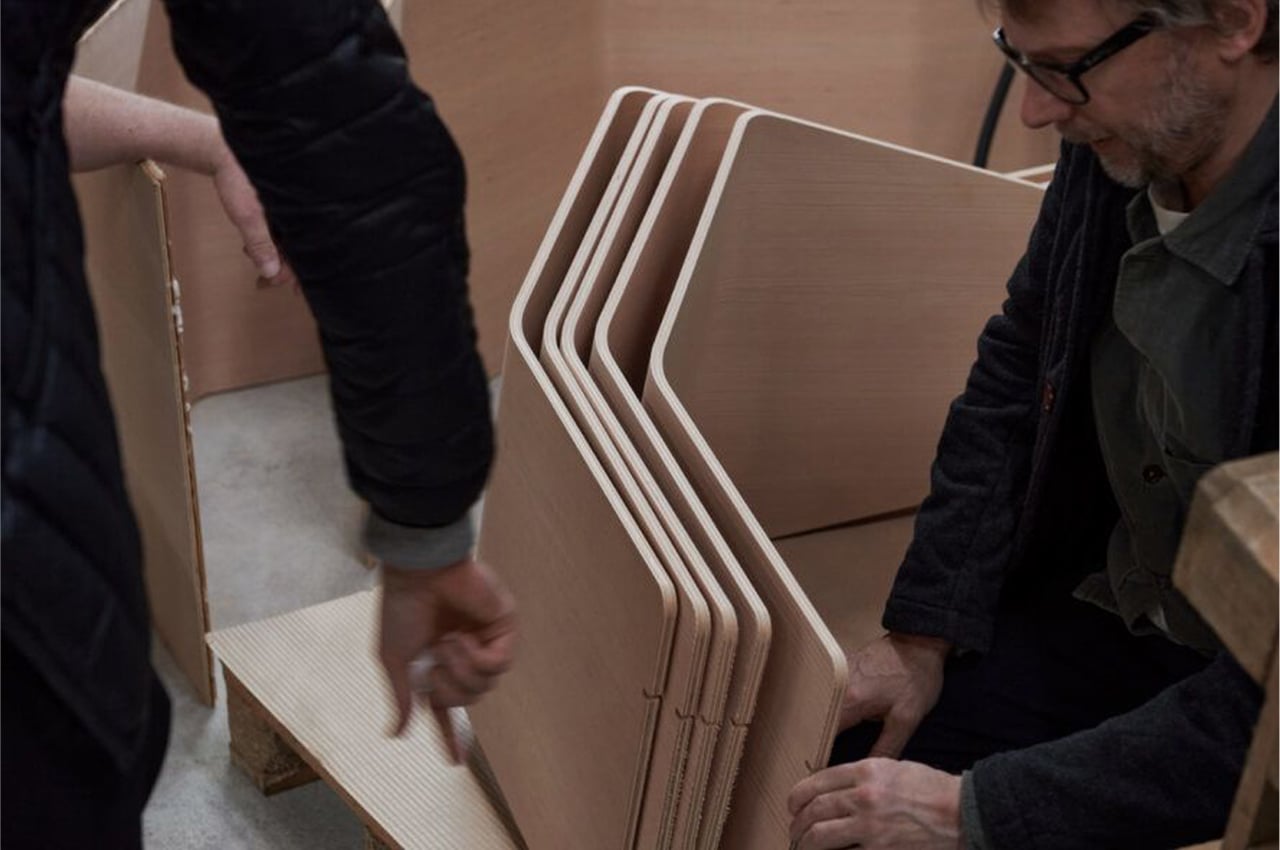
Comprised of flat and curved features, the 4PM Chaise Longue Chair is designed to create comfort out of hard material. Constructed in either Douglas fir or cherry wood, the only upholstered component of the 4PM Chaise Longue Chair is the leather headrest. Balanced on top of the backrest, Massproductions held the headrest in place with a steel weight.
Why is it noteworthy?
Massproductions is a slow furniture company, don’t let the name fool you. Since the furniture company only develops a few pieces every year, the ones that go into production guarantee a top-quality build and durable life span. Boasting an efficient, sustainable, and high-quality industrial production process, the company’s designers ensure the integrity of Massproductions’s vision. The company’s founder, Chris Martin, developed the 4PM Chaise Longue Chair to reinforce the company’s commitment to quality and produce an ergonomic, long-lasting chair for much-needed R&R.
What we like
- Sustainable production and design process
- Ergonomically designed
What we dislike
- It doesn’t seem very comfortable to sit on
- Space consuming
3. Vis-à-vis and Rendez-vous
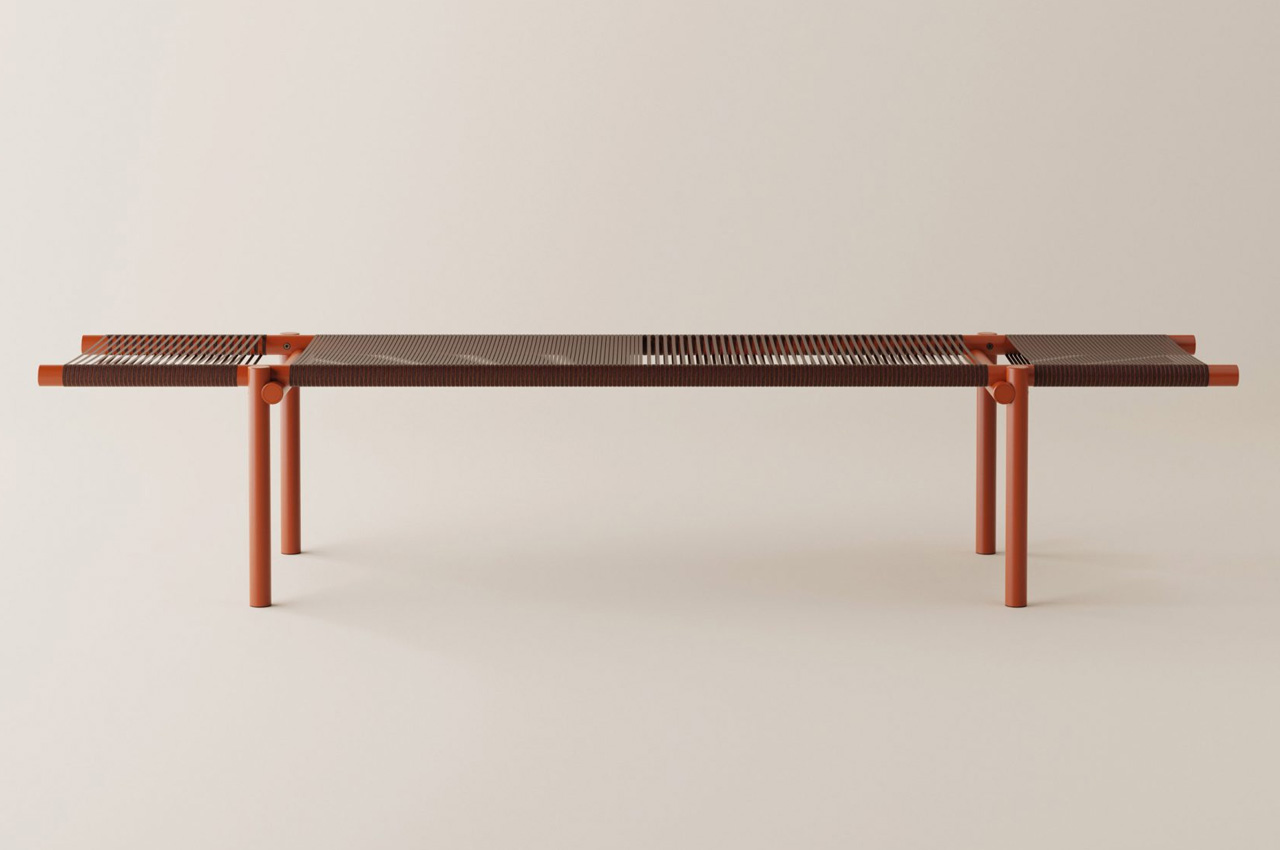
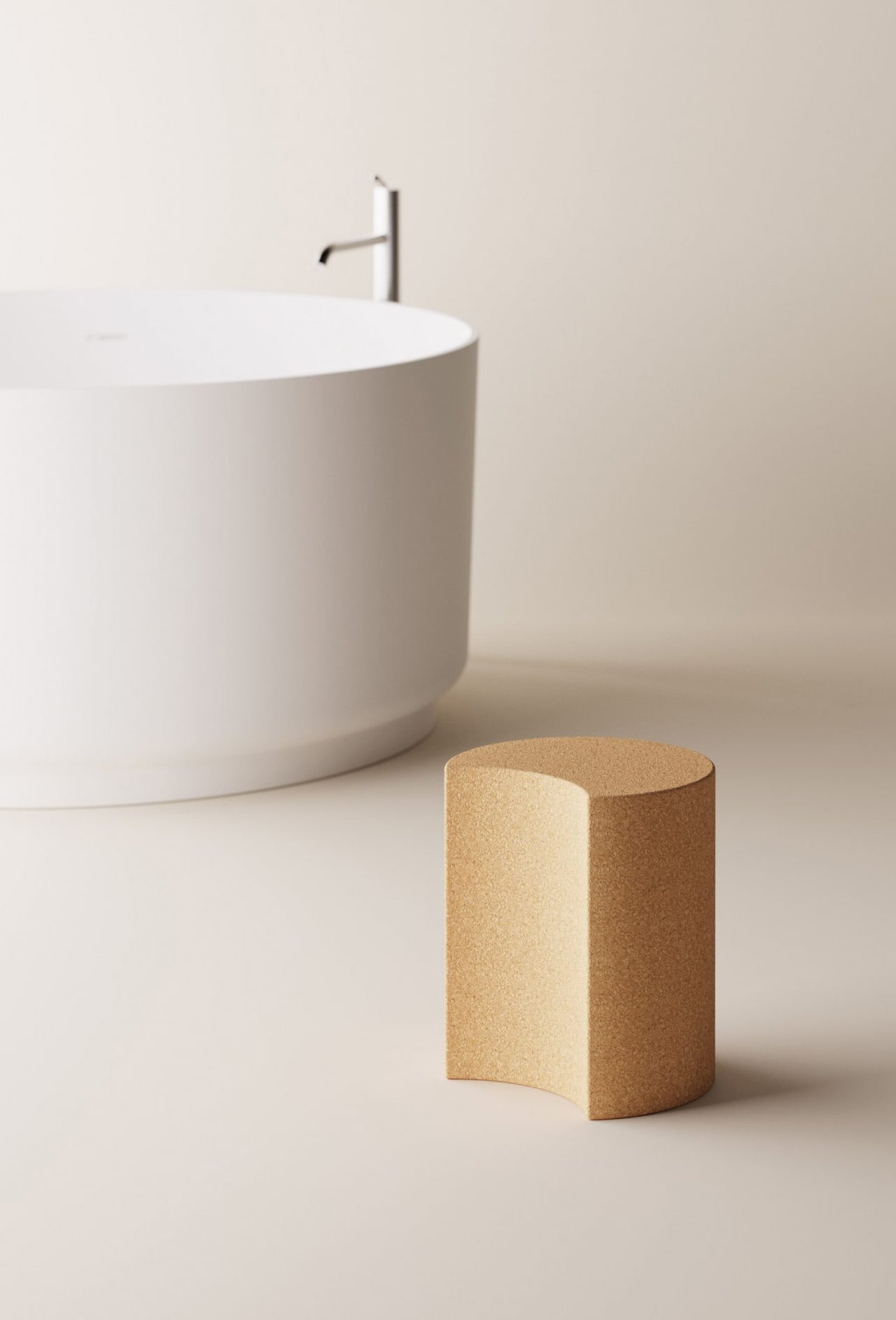
I’ve realized that filling up your bathroom with thoughtful designs, only makes your time in it much more comfortable and smooth. And this collection of bathroom seating by Italian bathroom brand Agape strives to be exactly that! Designed by Marco Carini for Agape, the collection includes two seating designs created from recycled cork.
Why is it noteworthy?
The first design is called Vis-à-vis, and it is a light and sturdy stool that also doubles up as a tiny side table. The second design is Rendez-vous, and it’s a bench that serves as an extensive seating option for bathroom users. Both designs function as comfortable spots to sit and relax in the bathroom.
What we like
- Crafted from recycled cork
- The curving form resembles someone smiling
What we dislike
- Not suited for bathrooms with a smaller footprint
4. The Chatpod 700
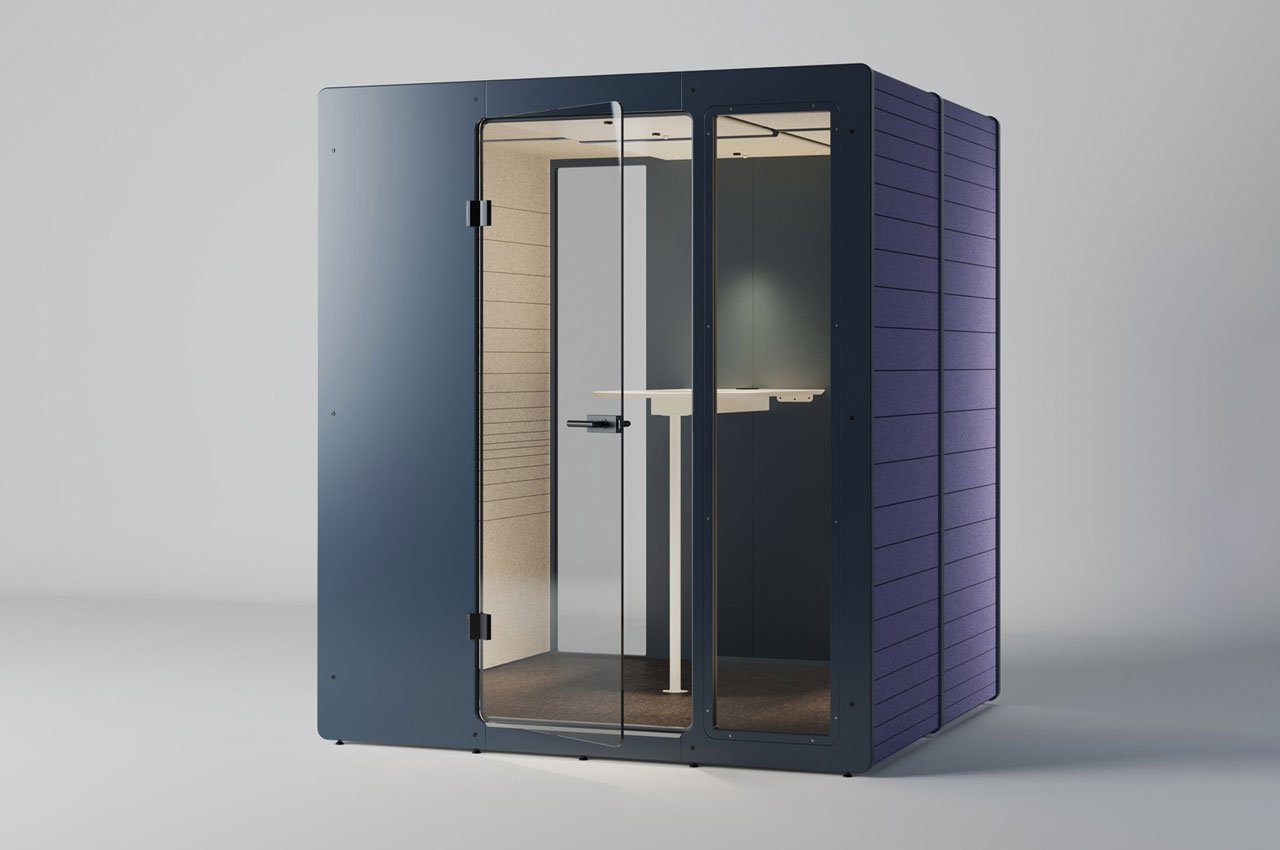
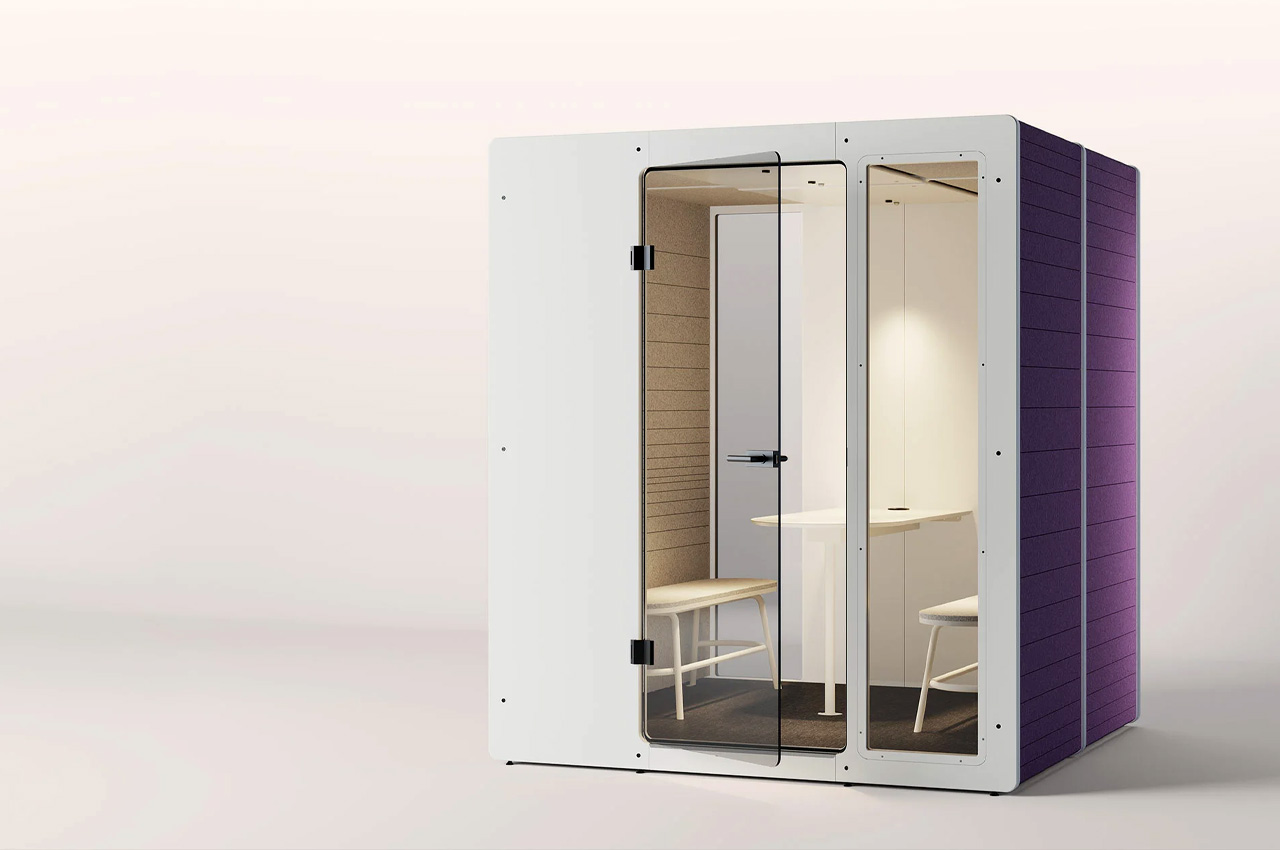
There are quite a few versatile options on the market when it comes to office booths, but have you come across the most sustainable one yet? Yup, called the Chatpod 700, this sleek and minimal office booth claims to be “the most sustainable office booth on the market”.
Why is it noteworthy?
Made entirely from recycled materials such as post-consumer cardboard, sawdust, rubber, and plastic bottle, the Chatpod 700 is quite proud of its sustainable composition, and with reason. Designed by Jeffrey Ibañez for Impact Acoustic, the office booth was ideally created for team meetings.
What we like
- Built using recycled materials
- Great space to hold casual informal meetings
What we dislike
- Large space-consuming design
5. Listón
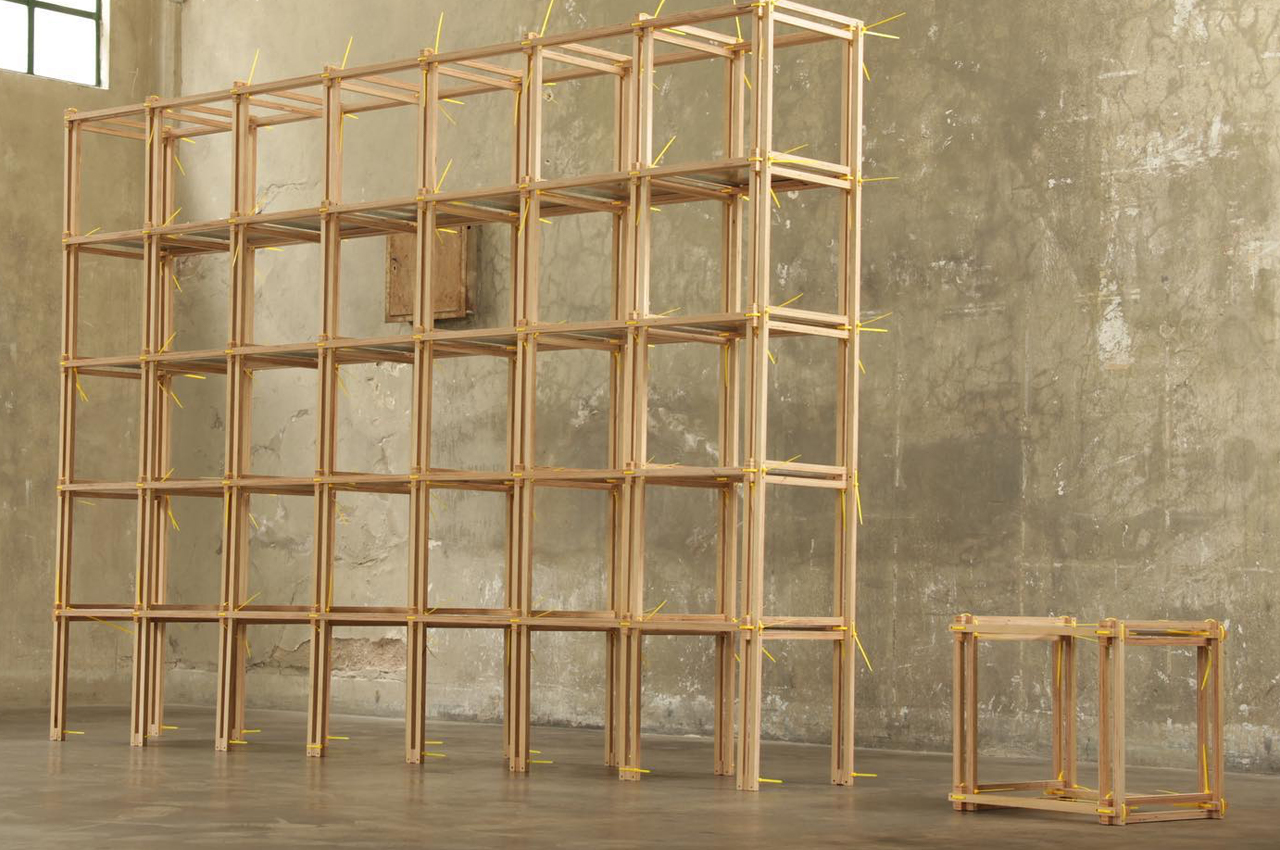
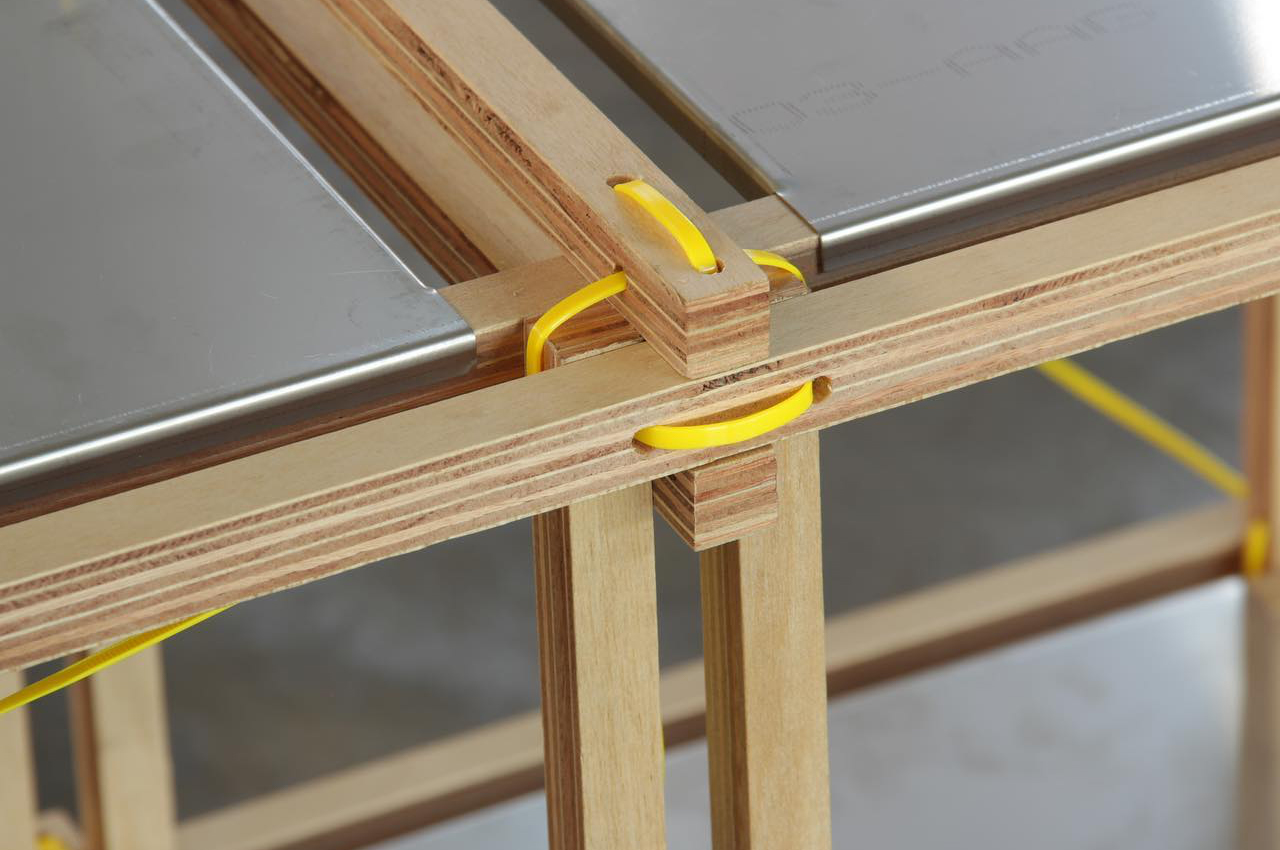
Listón is a modular shelving unit that uses a system of cable ties and wooden slats to form an endlessly re-configurable and sustainable furniture piece. The cable tie system allows users to create infinite configurations of varying sizes and shapes for essentialist shelving units that will look good in any room. Replacing hardware and tools, the cable ties systems provide secure fastening for each module that comes with Listón.
Why is it noteworthy?
With this in mind, many designers are approaching new furniture and appliance designs with sustainability being the driving force. Adding his design to the mix, architect, and designer Guille Cameron Mac Lean developed Listón, a new type of furniture system that uses cable ties and wooden slats to configure modular storage units.
What we like
- The system of cable ties and wooden slats significantly reduces the amount of packing goods needed to ship the furniture system by 18 times in comparison to other flatpack furniture
What we dislike
- The wooden slats and cable ties could break
- Not the most aesthetic furniture design to add to your living space
6. The Plastic Translation Stool
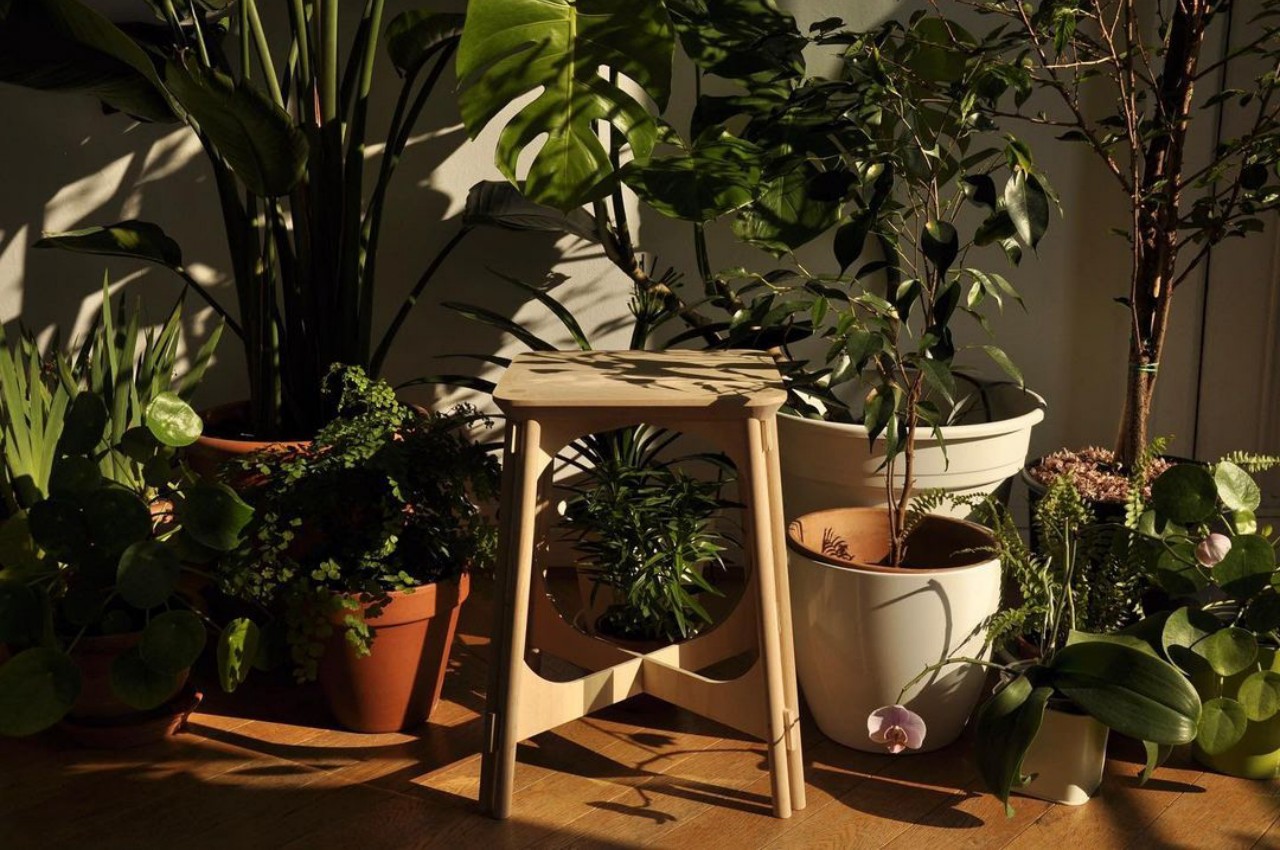
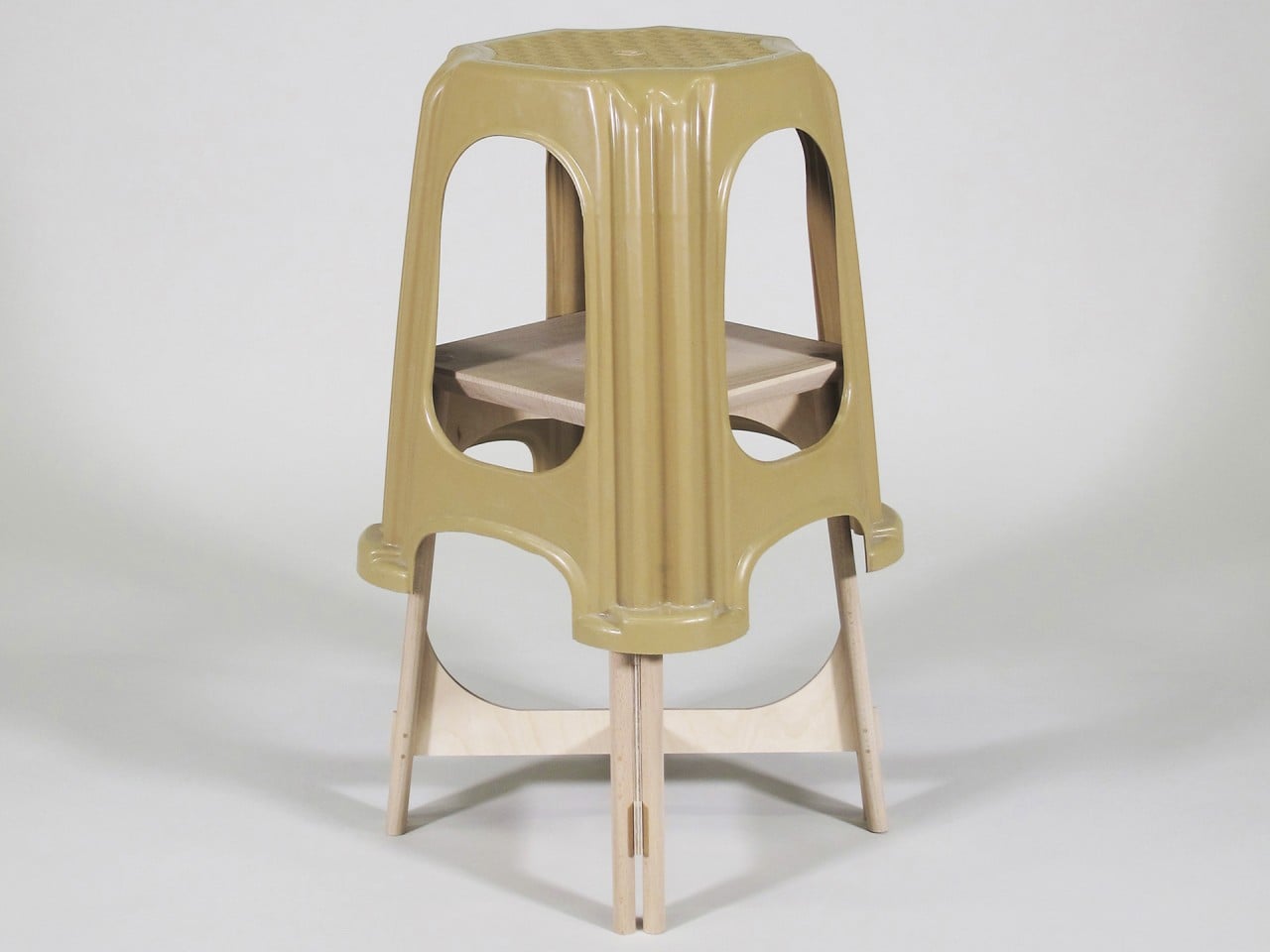
The Plastic Translation Stool design tries to reinterpret the lines of the plastic stool instead, resulting in a form that is somewhat similar yet also unique, giving the wooden stool its own character.
Why is it noteworthy?
Those legs alone, however, won’t be enough to offer the same stability as the plastic counterpart, so an additional element had to be added. Birch plywood buttresses distribute some of the force evenly across the beechwood legs, which, in turn, hold the buttresses together. These interlocking parts provide not only architectural stability but also visual accents to what would otherwise be a plain-looking stool.
What we like
- Doesn’t require screws or nails to be assembled
- A more sustainable option to the plastic stool
What we dislike
- Options to customize the stool are currently missing
7. Stackabl
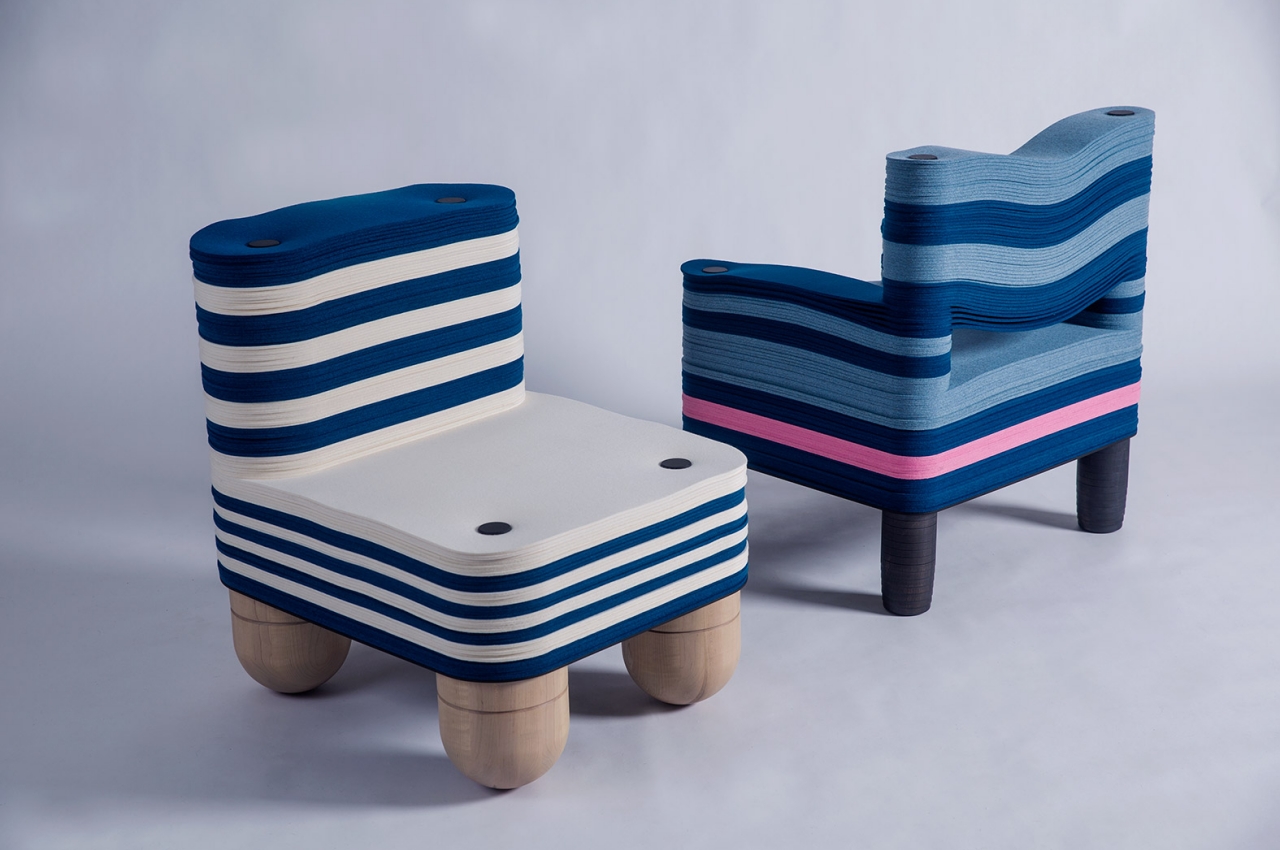
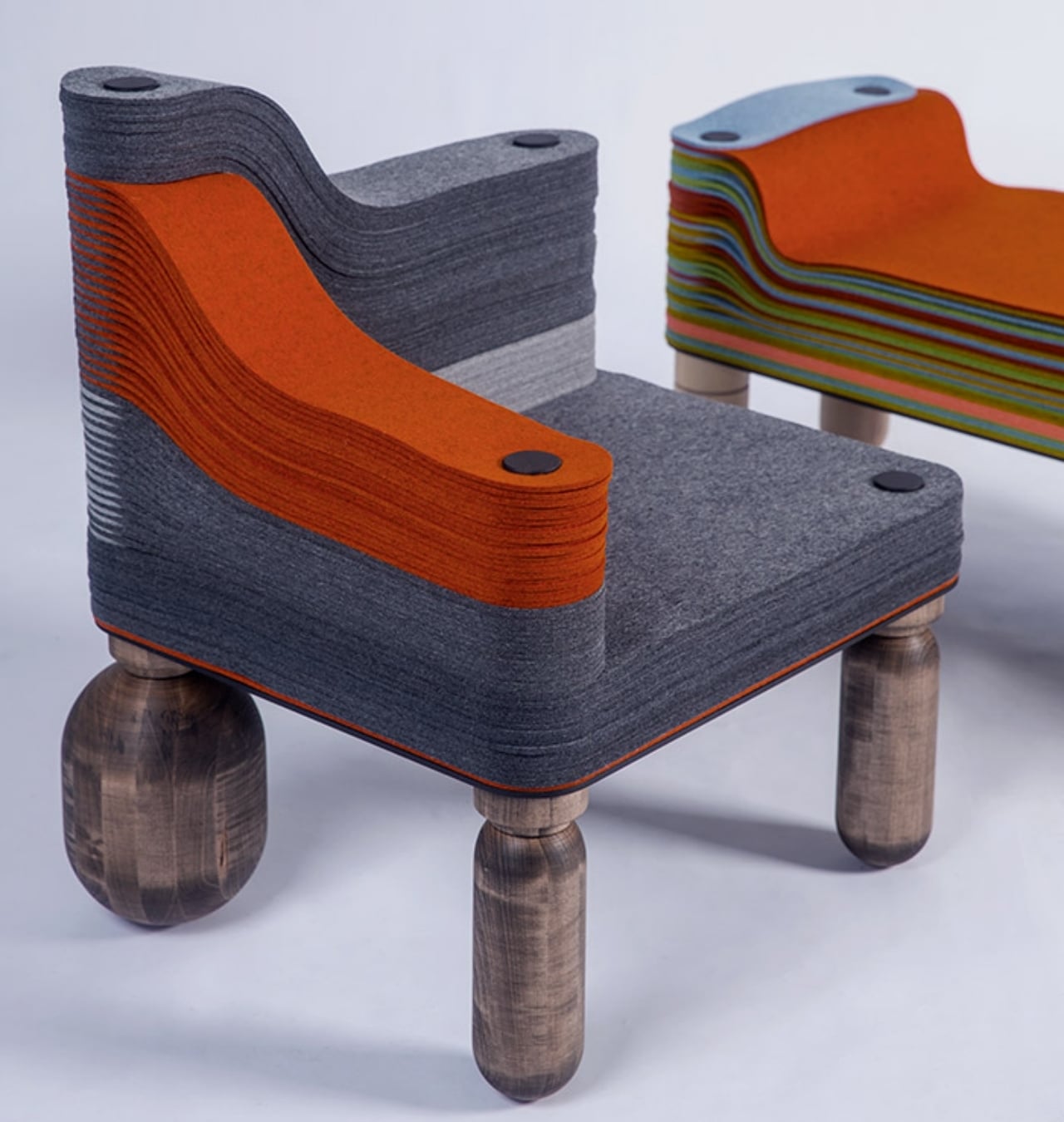
More than just a collection of designer furniture in the form of chairs, lounges, and benches, Stackabl is actually a new system that mixes machine precision with human creativity. In a nutshell, a specialized configurator software analyzes choices made by a user or a designer, like colors or dimensions, and selects high-quality felt offcuts that are then cut by robots for use in making furniture.
Why is it noteworthy?
The demand for clothing and furniture upholstery has probably gone up in the past few years, as more people become more attuned to well-designed products. That means more materials are used for production, which unfortunately also means more scraps are left on the cutting room floor, quite literally. While some of these materials are biodegradable or at least recyclable, one design firm is putting them to good use to create furniture that not only looks comfortable but artistically striking as well.
What we like
- Reduces carbon footprint while also enriching and empowering local economies
What we dislike
- May not suit modern contemporary homes
8. The TAKEoSEAT
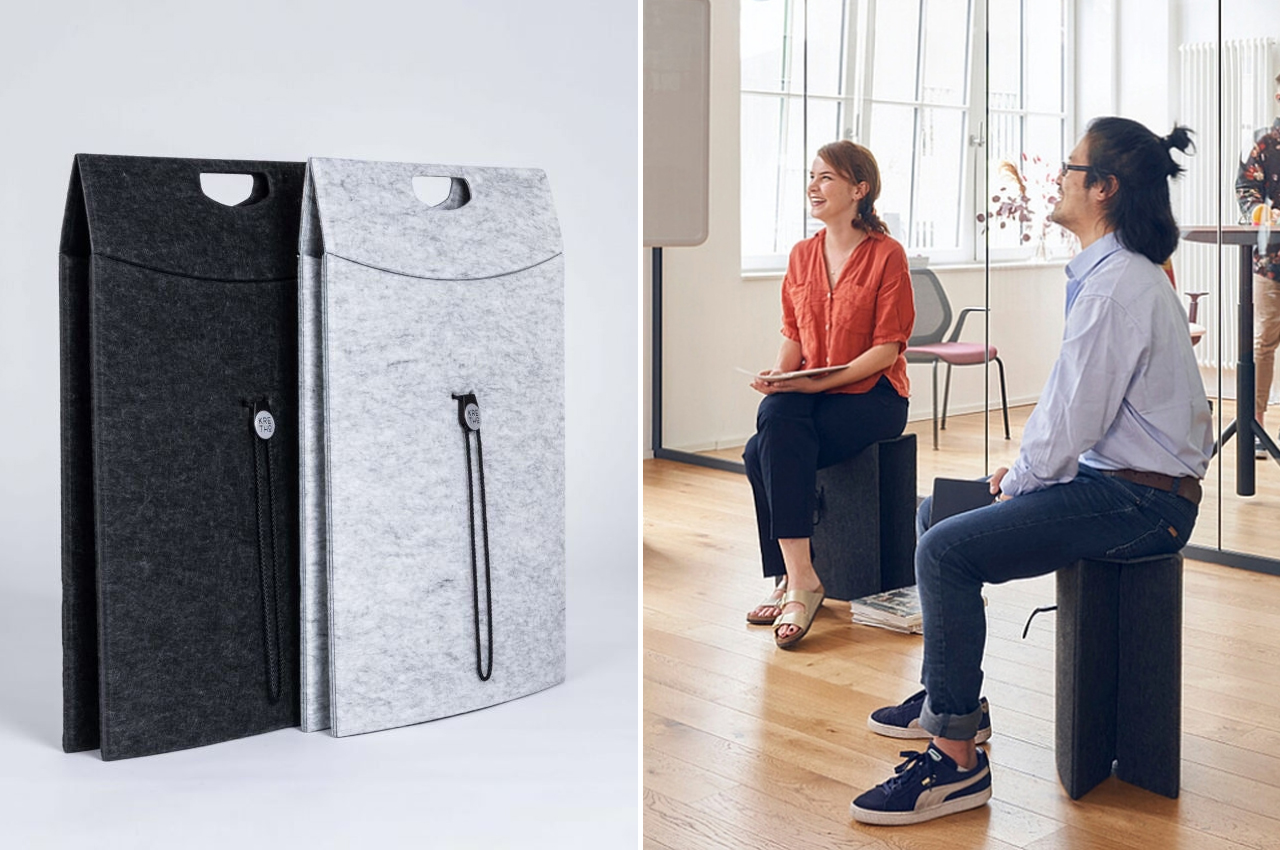
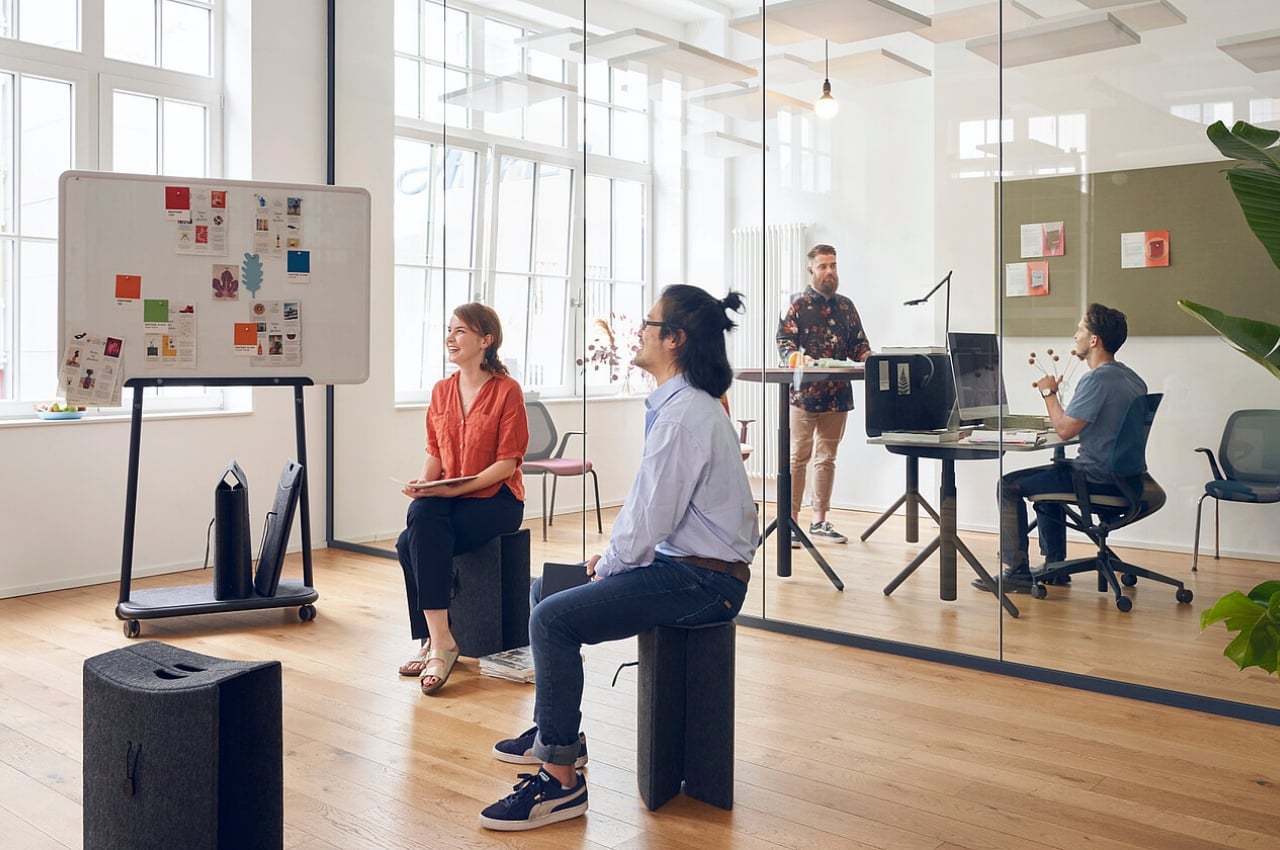
Folding stools are nothing new, but few actually try to hide the fact that people are carrying something meant to be sat on. In contrast, the TAKEoSEAT flattens down to something that looks like a large portfolio, or at least a stylish bag made of felt. You won’t look odd carrying it around, nor would the seat look out of place in an office space. Designer KRETHO positions this portable stool as a perfect part of an agile arsenal, allowing people to just pick up their seats and move around as needed. No more rearranging furniture or sweating over a heavy chair.
Why is noteworthy?
This folding design is admittedly not exactly novel, but what TAKEoSEAT adds to the table is a bit of environmental focus. Each stool is made from PET felt, which is felt comes from those plastic bottles that we use and throw away without giving a second thought about where they end up. PET bottles undergo a special process (that does, unfortunately, use up water and energy) that results in a material that feels familiar to the touch while also strong enough to support a load of 130 kg. Plus, the TAKEoSEAT itself is recyclable, too!
What we like
- Created from PET felt
- Extremely portable
What we dislike
- Folding designs are quite common these days
9. The Stair Cubby
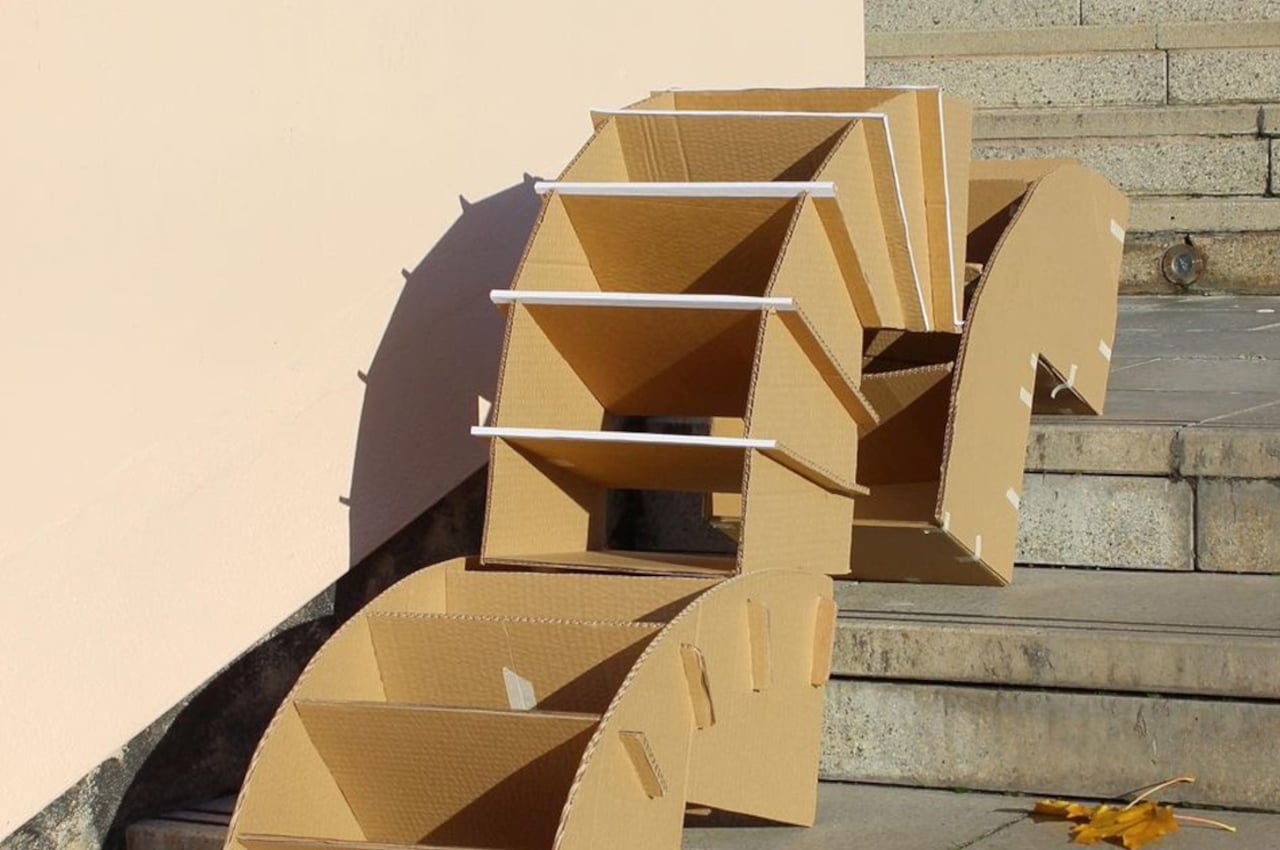
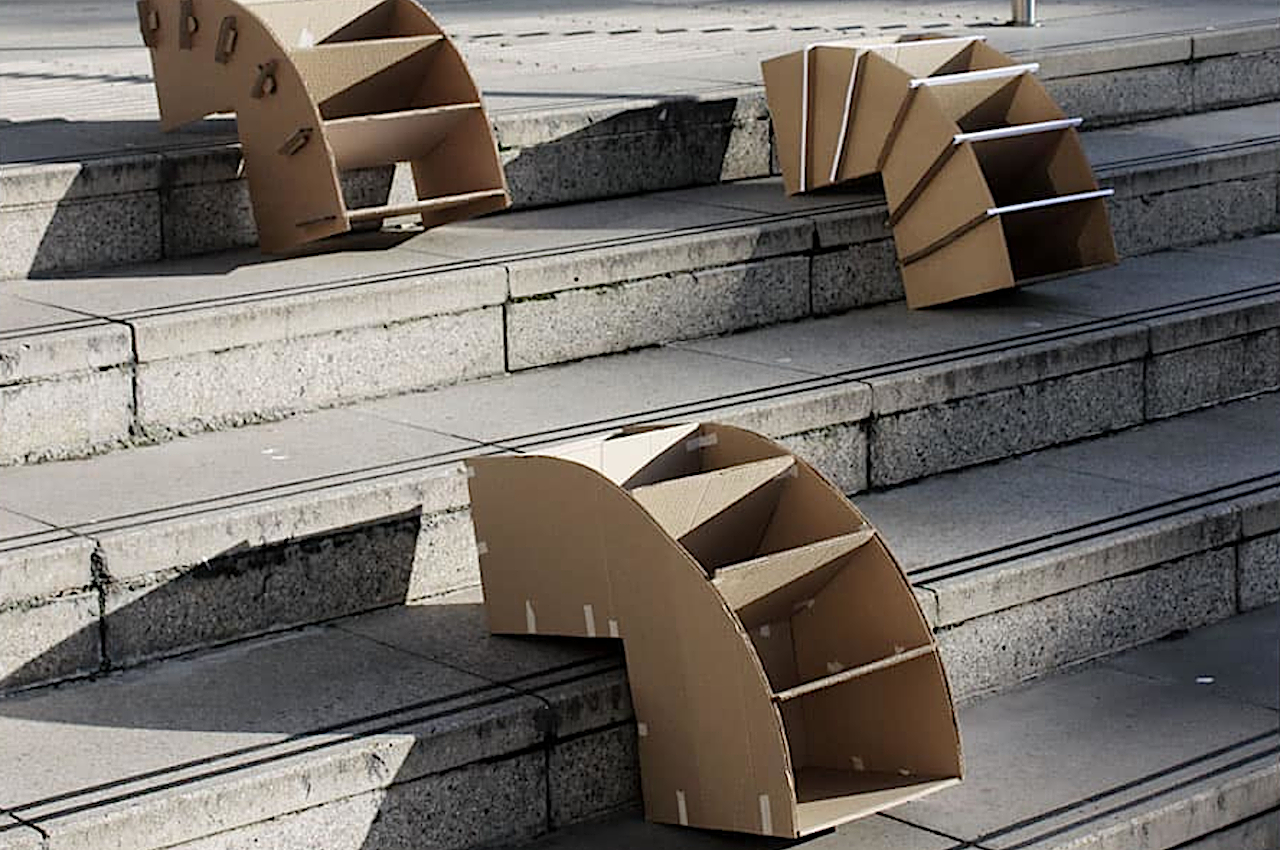
The Stair Cubby, as it was christened, can be assembled without the use of tools, with tabs simply going into slots and held down with pegs. The cubby is designed to sit on two steps of stairs, but the panel on the back can slide up and down to adjust to different stair heights. The storage has five open-access cubbies for shoes, books, and any other item that can fit inside, keeping things organized and out of harm’s way.
Why is it noteworthy?
Staircase bins need to take into account the particular shape of stairs, but not all stairs are made equal, so they have to be a bit more flexible or at least configurable. Given how in-demand these storage solutions might be, they also need to be durable and sustainable. These two product design students from Nottingham Trent University in the UK hit both birds with one sheet of plywood.
What we like
- Can be assembled without the use of tools
- Great for homes with space constraints
What we dislike
- We’re not sure how well it would hold heavier objects
10. Rattan Stool
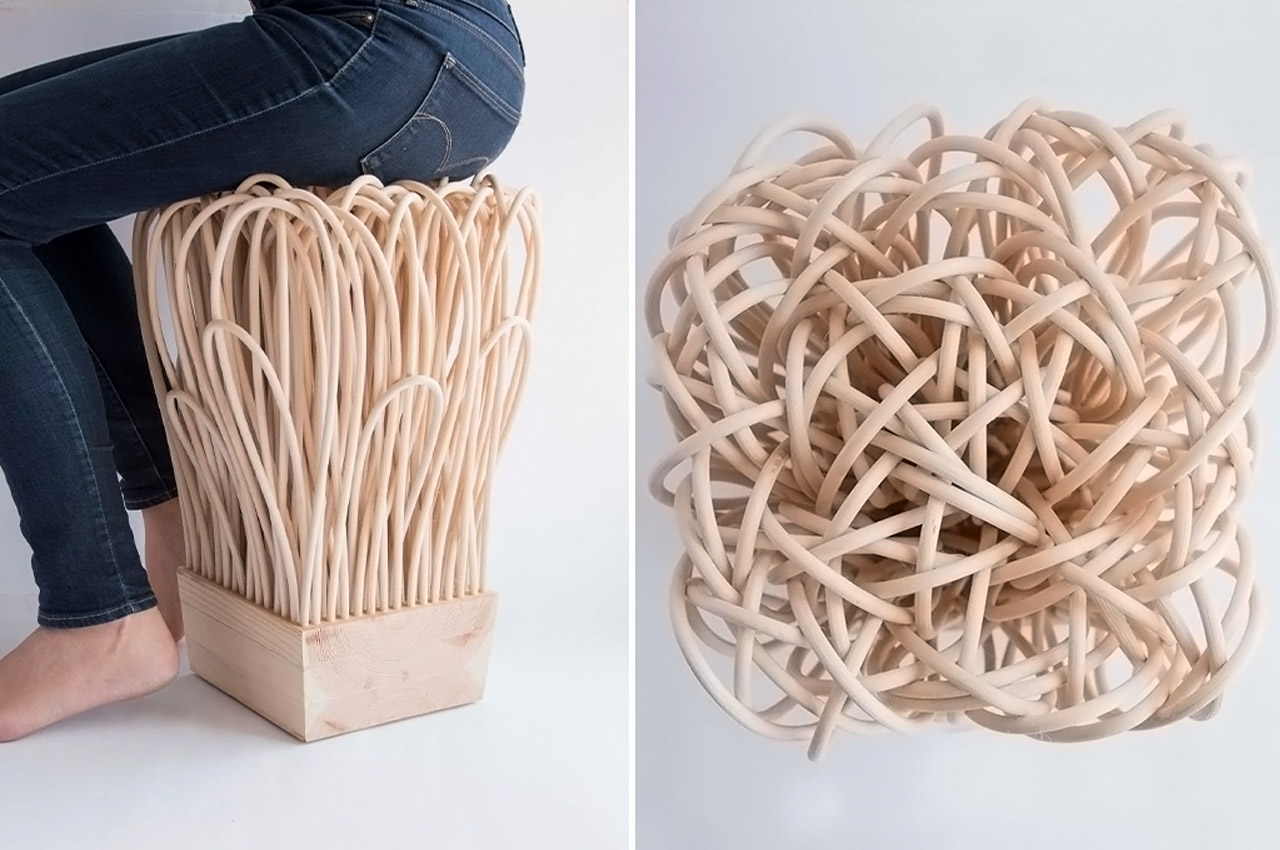
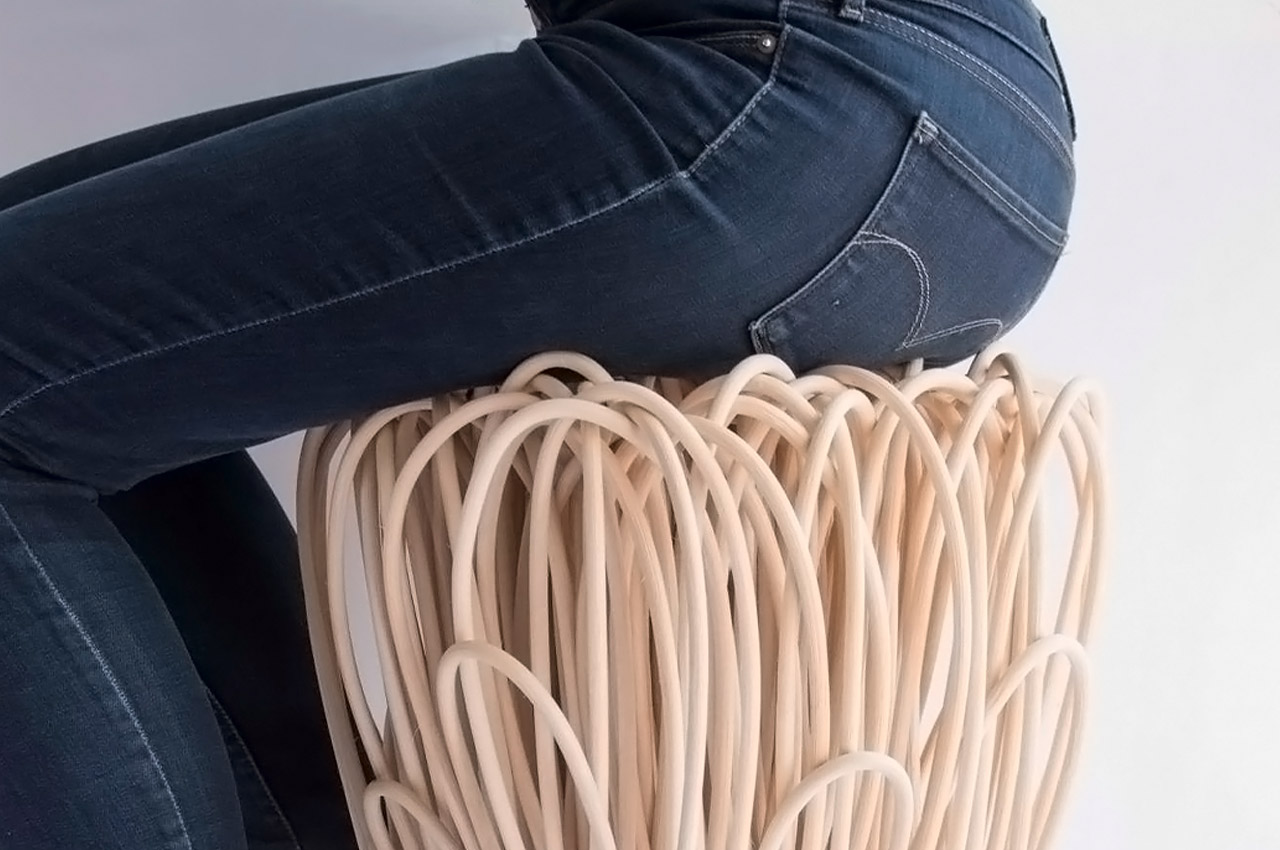
First impressions really quickly – did you think this was a whisk or folded spaghetti? I thought spaghetti but maybe I am just hungry. This rattan stool stood out to me because of its visually curiosity-evoking design. Is it comfortable? Probably. Is it cool? Absolutely.
Why is it noteworthy?
This stool explores the malleability of rattan as a material in furniture design, we are so used to seeing it in a checkered woven form that the noodle-like seating of this piece becomes a testament to how we can use often overlooked materials unconventionally to push boundaries. As the world moves towards a sustainable future, so must design.
What we like
- Innovative use of Rattan
- Quirky spaghetti-inspired aesthetics
What we dislike
- It may not be comfortable to sit on for long periods of time


